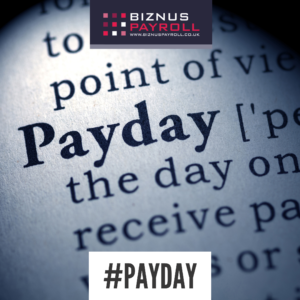 Our experienced team of payroll account managers will work closely with you to guide you through the set-up process and be on hand to answer your questions.
Our experienced team of payroll account managers will work closely with you to guide you through the set-up process and be on hand to answer your questions.
We provide a professional payroll outsourcing service so that your staff gets paid on time, every time.
When you decide to use our payroll services UK, you’ll need to complete our setup forms and send us proof of your identity for anti-money laundering purposes.
Then give us the details of your employees and provide a P45 or a Starter Checklist for each new member of staff and let us know about any special circumstances. If you’re an existing business transferring your payroll over to us, then we’ll need to know how much your staff have been paid to date, we will guide you to what information in detail as part of the process.
We work closely with a nominated person(s) within your company who sources and collates information, for example, new employee information, salary, and hours worked.
Each payroll period (usually each month) send us the details of your staff’s hours and salary, overtime, holiday and sickness, via email, fax or phone.
We’ll process the payroll and send you payslips and management reports including advising you what PAYE/NIC is due to HMRC. If required we can even arrange to pay your staff for you using one of our payment service options. If you opt for BACS bureau service, we’ll send the BACS instruction ensuring your employees are paid on time.
We also work with many TV, film and production clients and have and understand the 7-day rule and how it applies to pay in this industry.
| We take care of: | We take care of: | Optional extras: |
|---|---|---|
| Processing pay additions, for example: • Salary / Hourly Pay • Allowances (e.g. Car, Food, Shift etc) • Overtime • Bonuses • Commissions • Sick Pay • Other pay variables | Processing pay deductions, for example: • Salary Sacrifices (e.g. Cycle to Work schemes, Childcare Vouchers) • Payroll Giving / Give As You Earn • Student loans • Pension contributions • Staff loans / pay advances • Other pay variables | Construction Industry Scheme (CIS): • Sub contractor verification • Tax deductions • Contractor summary reports • Online monthly returns • Pay advice slip • RTI EPS Adjustments / Set Offs |
| Processing starters and leavers including P45's | Attachment of Earnings (AEO) or Deduction of Earnings Orders (DEO) for: • Court Orders / Fines • Council Tax • Child Maintenance | Workplace Pension Services: • Scheme set up • Workforce assessments • Ongoing compliance & provider management • Declaration of Compliance filing service • Re-enrolment management |
| Calculating Statutory Sick Pay (SSP) | Net to Gross and Gross to Net pay calculations | BACS Bureau Services - Direct Credits only (used for paying Wages, HMRC, Pension Contributions, CSA etc) |
| Calculating Statutory Holiday Leave Entitlement (Excludes the 52-week average pay calculation which is an optional extra) | PAYE Tax & NIC calculations | Expenses & Benefits P11D and Class 1a NIC calculations and submissions |
| Director's NI, compliance with the Special NI Rules | Payrolling Benefits | Holiday Pay: 52 paid weeks average pay calculation. |
| Calculating Statutory Maternity, Paternity and Adoption Pay (SMP, SPP & SAP) | Calculating Statutory Redundancy Pay | |
| Shared Parental Leave & Pay calculations (SPL and ShPP) | Providing P60 annual statements | |
| Issuing Payslips: • e-Payslips • Printed payslips | RTI (Real Time Information) management & submissions: • FPS - Full Payment Submission • EPS - Employers Payment Submission • EAS - Employers Alignment Submission • NVR - NI Verification Request • EYU - Earlier Year Updates | |
| Generating management payroll reports | HMRC correspondence and hosted compliance inspections | |
| Employment Allowance or Apprenticeship Levy calculations |
Our team are all members of the Chartered Institute of Payroll Professionals (CIPP)
If you would like to find out more about our payroll services company or pension services then give us a call on 01373 228300 or email info@biznuspayroll.co.uk

